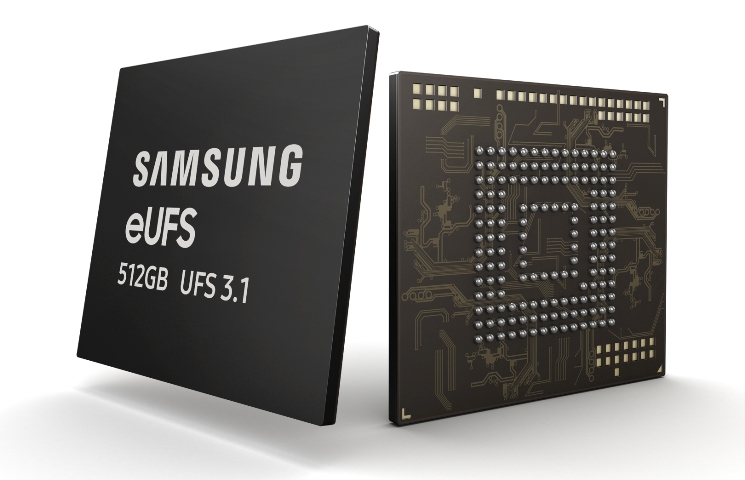Samsung announces mass production of 512GB eUFS 3.1 storage
At a sequential write speed of over 1,200MB/s, Samsung's 512GB eUFS 3.1 boasts more than twice the speed of a SATA-based PC (540MB/s) and over ten times the speed of a UHS-I microSD card (90MB/s).

- Country:
- Korea Rep
Samsung on Tuesday said that it has started mass producing the industry’s first 512GB embedded Universal Flash Storage (eUFS) 3.1, the fastest mobile storage for flagship smartphones.
Samsung's new eUFS 3.1 storage offers three times the write speed of the previous 512GB eUFS 3.0 (410MB/s) mobile memory, breaking the 1GB/s performance threshold in smartphone storage.
At a sequential write speed of over 1,200MB/s, Samsung's 512GB eUFS 3.1 boasts more than twice the speed of a SATA-based PC (540MB/s) and over ten times the speed of a UHS-I microSD card (90MB/s).
Talking about the performance of the 512GB eUFS 3.1, it processes up to 60 percent faster than the widely used UFS 3.0 version, offering 100,000 input/output operations per second (IOPS) for reads and 70,000 IOPS for writes, the South Korean electronics giant said in a statement. The new 512GB eUFS 3.1 stores 8K videos and large-size image files without any buffering.
Smartphones with the new eUFS 3.1 will only take about 1.5 minutes to move 100GB of data as compared to the UFS 3.0-based phones that take more than four minutes. The eUFS 3.1 will also be available in 256GB and 128GB capacities, later this year.
With our introduction of the fastest mobile storage, smartphone users will no longer have to worry about the bottleneck they face with conventional storage cards. The new eUFS 3.1 reflects our continuing commitment to supporting the rapidly increasing demands from global smartphone makers this year.
In addition, Samsung said its plans to shift V-NAND volume production at its Pyeongtaek line (P1) in Korea from fifth-generation to sixth-generation V-NAND to better address the growing demand. The semiconductor giant has already started volume production of fifth-generation V-NAND at its new X2 line in China.










